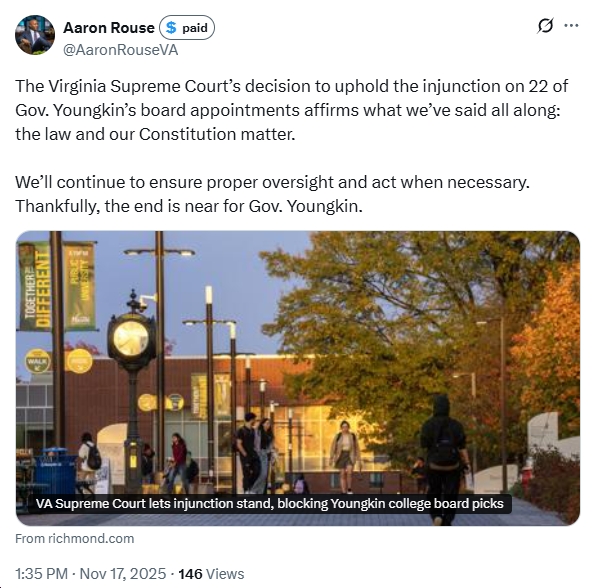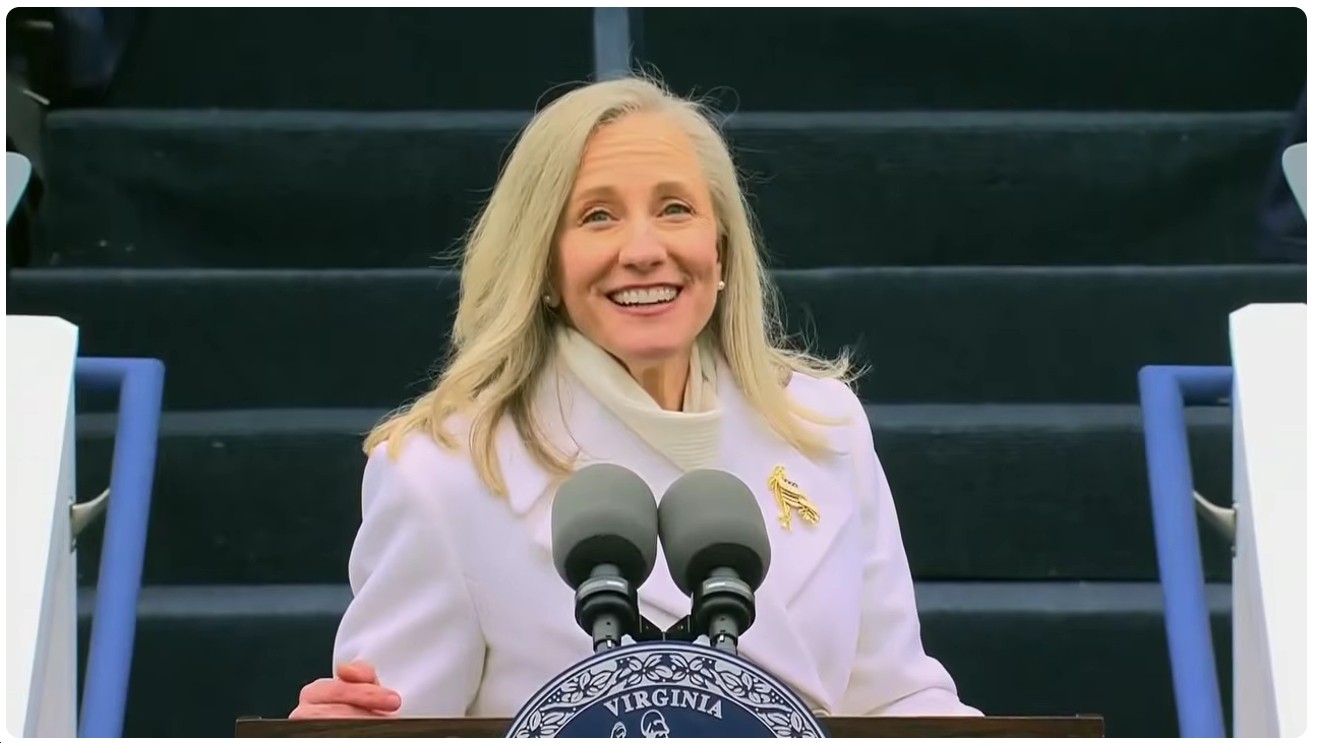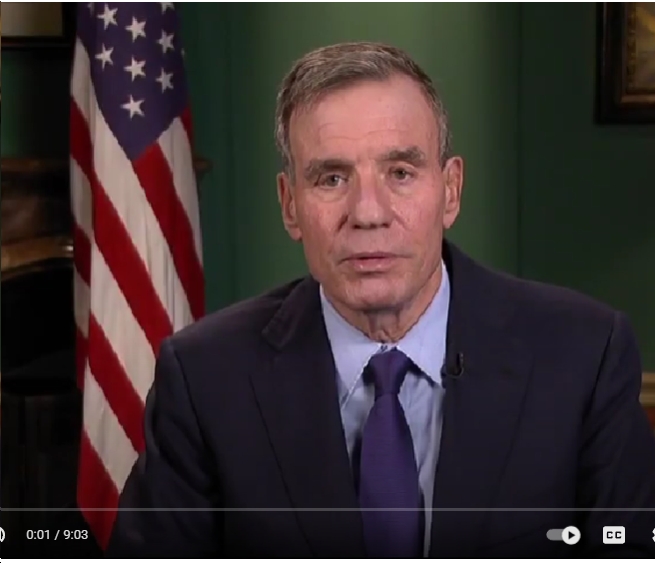Earlier this month, the Daily Progress assessed that the University of Virginia (UVa) is “at the mercy of forces beyond its control” and that escalating costs of UVa’s financial aid program, AccessUVa, “cannot be sustained.”
Brendan Wynn, a student at the University who has been outspoken about the cuts to AccessUVa and one of the leaders of the Restore AccessUVa movement, has hit back with a letter to the editor, which was published over the weekend:
As a University of Virginia student, I respectfully disagree with the editorial assessment that UVa is “at the mercy of forces beyond its control” and that escalating costs “cannot be sustained” (“AccessUVa: Scale back to give more,” The Daily Progress, Dec. 2). Although dwindling state support has contributed to UVa’s budget crunch, this cut is ultimately a matter of priorities.
As one of the wealthiest public institutions of higher education in the nation, the university — and not its donors — has an obligation to ensure that cost, including loan burden, is not a barrier to a high-quality education for talented students.
The truth is that out of an operational budget of $1.4 billion, the $6 million cost to maintain a no-loan policy for our lowest-income students amounts to a total of .05 percent.
The damaging cut will make it harder for many low-income students and students of color to obtain a college education at a school that already struggles to increase its socioeconomic diversity and ranks at the bottom 5 percent in terms of access for low-income students.
Mr. Jefferson was ahead of his time when he designed our university to educate talented students regardless of their wealth. Grant aid to students from families in or near poverty should be a budget priority here at UVa. The question that those who have cut financial aid have repeatedly failed to answer is this: Why, if they had to cut somewhere, do they chose to cut grant aid to students from the poorest families, who do not have a safety net like other students do?
This was not a matter of financial inevitability, but a question of financial priorities. Jefferson had it right.
Brendan Wynn, Charlottesville
Although dwindling state support has contributed to UVa’s budget crunch, this cut is ultimately a matter of institutional priorities. The President of the University, Teresa Sullivan, has launched a fundraising appeal, which ultimately deflects the institution’s responsibility to promote access and affordability onto the hands of students and alumni. This effort would amount to little more than plaster over the cracks.
As part of the national Giving Tuesday movement, President Sullivan donated her recently-approved 2% salary increase to match every dollar raised for AccessUVa by the Young Alumni Council up to $10,000. While such personal commitment is a nice gesture, it falls far short from a meaningful institutional commitment. The fact remains that the University significantly scaled back its financial aid to the poorest of students, all in the name of saving $6 million – less than ½ of 1 percent – from the annual $1.4 billion budget.
Wynn’s letter is on point -- Thomas Jefferson was ahead of his time when he designed the University to educate talented students regardless of their wealth. Considering that UVa already sits in the bottom 5% of colleges nationwide in access for low-income students, grant aid for students living in or near poverty must be more of a budget priority. The question that those who have cut financial aid have repeatedly failed to answer is why, if they had to cut somewhere, they chose to cut grant aid to students from the poorest families, those who do not have a safety net in the same way other students often do.
Cross-Posted at I AM NOT A LOAN
Earlier this month, the Daily Progress assessed that the University of Virginia (UVa) is “at the mercy of forces beyond its control” and that escalating costs of UVa’s financial aid program, AccessUVa, “cannot be sustained.”
Brendan Wynn, a student at the University who has been outspoken about the cuts to AccessUVa and one of the leaders of the Restore AccessUVa movement, has hit back with a letter to the editor, which was published over the weekend:
As a University of Virginia student, I respectfully disagree with the editorial assessment that UVa is “at the mercy of forces beyond its control” and that escalating costs “cannot be sustained” (“AccessUVa: Scale back to give more,” The Daily Progress, Dec. 2). Although dwindling state support has contributed to UVa’s budget crunch, this cut is ultimately a matter of priorities.
As one of the wealthiest public institutions of higher education in the nation, the university — and not its donors — has an obligation to ensure that cost, including loan burden, is not a barrier to a high-quality education for talented students.
The truth is that out of an operational budget of $1.4 billion, the $6 million cost to maintain a no-loan policy for our lowest-income students amounts to a total of .05 percent.
The damaging cut will make it harder for many low-income students and students of color to obtain a college education at a school that already struggles to increase its socioeconomic diversity and ranks at the bottom 5 percent in terms of access for low-income students.
Mr. Jefferson was ahead of his time when he designed our university to educate talented students regardless of their wealth. Grant aid to students from families in or near poverty should be a budget priority here at UVa. The question that those who have cut financial aid have repeatedly failed to answer is this: Why, if they had to cut somewhere, do they chose to cut grant aid to students from the poorest families, who do not have a safety net like other students do?
This was not a matter of financial inevitability, but a question of financial priorities. Jefferson had it right.
Brendan Wynn, Charlottesville
Although dwindling state support has contributed to UVa’s budget crunch, this cut is ultimately a matter of institutional priorities. The President of the University, Teresa Sullivan, has launched a fundraising appeal, which ultimately deflects the institution’s responsibility to promote access and affordability onto the hands of students and alumni. This effort would amount to little more than plaster over the cracks.
As part of the national Giving Tuesday movement, President Sullivan donated her recently-approved 2% salary increase to match every dollar raised for AccessUVa by the Young Alumni Council up to $10,000. While such personal commitment is a nice gesture, it falls far short from a meaningful institutional commitment. The fact remains that the University significantly scaled back its financial aid to the poorest of students, all in the name of saving $6 million – less than ½ of 1 percent – from the annual $1.4 billion budget.
Wynn’s letter is on point — Thomas Jefferson was ahead of his time when he designed the University to educate talented students regardless of their wealth. Considering that UVa already sits in the bottom 5% of colleges nationwide in access for low-income students, grant aid for students living in or near poverty must be more of a budget priority. The question that those who have cut financial aid have repeatedly failed to answer is why, if they had to cut somewhere, they chose to cut grant aid to students from the poorest families, those who do not have a safety net in the same way other students often do.
Cross-Posted at I AM NOT A LOAN


![Virginia NAACP: “This latest witch hunt [by the Trump administration] against [GMU] President Washington is a blatant attempt to intimidate those who champion diversity.”](https://bluevirginia.us/wp-content/uploads/2025/07/gmuwwashington.jpg)















